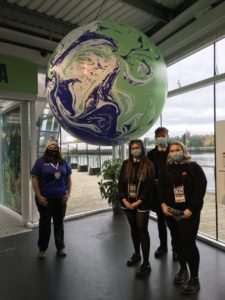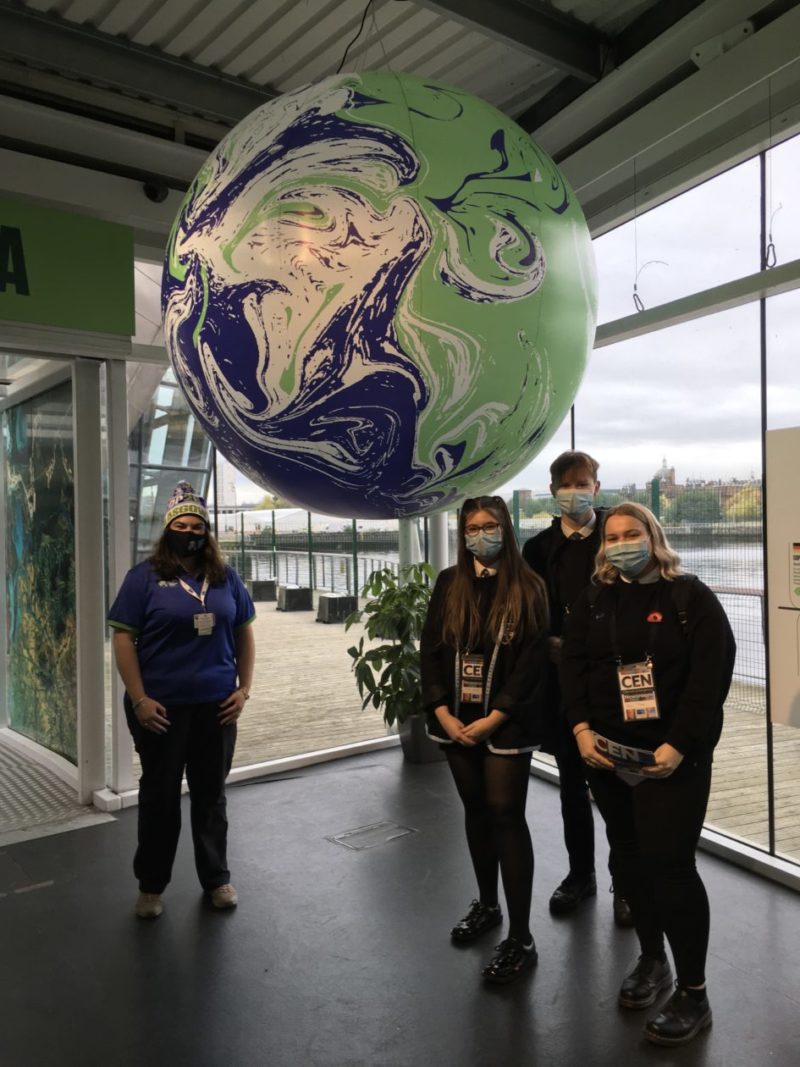INTERVIEW: Catherine Gemmell – Scotland Conservation Officer For Marine Conservation Society
Lucy Smith, Kieran Hunter and Grace Moore

We interviewed Catherine Gemmell who is a Scotland Conservation Officer for the Marine Conservation Society, we asked her a few questions about her role and what she does.
What’s Catherines Gemmells role in the Marine Conservation Society?
Catherines role is doing work around marine litter. This is litter that has entered the oceans and beaches. She works with volunteers across Scotland to do beach cleans and litter picks. Not only do they remove the litter but they research the litter that has been picked up and report their findings to the Scottish Parliament and Government, so that they can produce new laws to stop marine litter.
What would you like to see done about oceans at the COP26 Summit?
Catherine has one simple message and that is “listen to the oceans”. She says that they have a lot of colleagues in the Green Zone and the Blue Zone and education officers working around the city. However, Catherine tells us that we are hearing a lot about land based solutions and how we can help rainforests but not a lot about our oceans and its role in lessening the effects of climate change and looking after our wellbeing. Also the amazing biodiversity (the variety of plant and animal life) and so many amazing habitats that help store carbon.
She tells us how important it is to be a voice for the ocean, we can do this by speaking to world leaders and negotiators to help the ocean. “Be a voice for the ocean.”
How can we raise awareness about the Marine Conservation Society and our oceans to the young people of Scotland?
They have a website called www.mcsuk.org and they also have lots of social media channels. By having a look at the website and following their instagram and twitter, it is easy to learn and keep up with new information. She suggests finding out about your local area and local beaches and doing litter picks or beach cleans. Even if you can’t get down to the coast she says “We’re all connected to the ocean no matter where we are”. Even from your home, ensuring we don’t put things that aren’t meant to be flushed down the toilet, or put down the sink and keeping the oceans clean.
As well as being a Conservation Officer for the Marine Conservation Officer, Catherine Gemmell has been volunteering at the Green Zone during the COP26 Summit.
What has your volunteering allowed you to do and see over the course of the COP26 Summit?
Glasgow City Council have asked for volunteers to come and help out, and she was picked to volunteer at the Green Zone. the Green Zone is designed as a space for a number of different groups to come and tell their story about what they’re doing to help battle climate change and try and put pressure on the world leaders.
Her role as a volunteer is to be based in the Science Centre welcoming the world to Glasgow and in some ways welcoming Glasgow. She says that even though it is a Global Conference, it is good to hear local stories and initiatives.
She’s had the opportunity to meet so many amazing people and on her first day even almost bumped into the First Minister as she was coming through the door.
In your opinion has the Green Zone been a success?
Catherine believes that the Green Zone has been a success and that it has been really important to have a space where anyone can come to and it has been great that it has opened up to the public to maximise the amount of people learning and sharing. She feels that it has been so important for organisations to have a platform to talk, and also a number of “VIPs” and World Leaders coming to the Green Zone and being able to speak directly to them.
She says it’s amazing that online events and events across the country have been amazing to give everyone an opportunity to learn even if they don’t live in Glasgow or Scotland, and hopes this continues even after the summit ends.
Do you feel that your message has been listened to?
Catherine thinks that some people have listened, and some people have heard but not enough. She feels this has been very apparent after the number of protests and Friday for Future Marches. She says we also have still to see the actions taking place, even if commitments and agreements are made we want to see it happening and in action. “Keep up the pressure because time has already run out”


